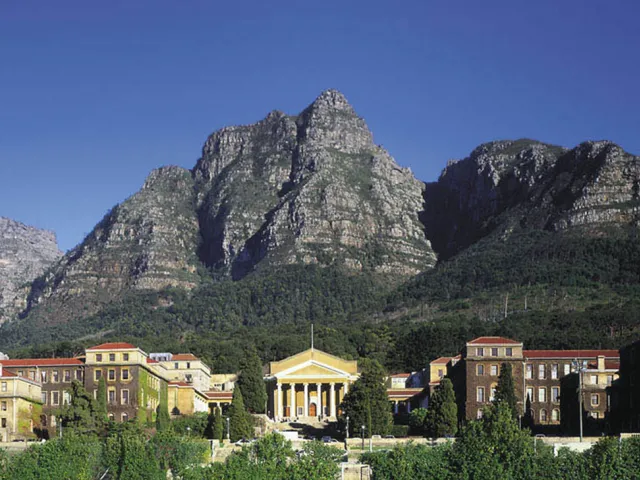Is UCT compromising academic freedom in the Gaza debate?

The University of Cape Town.
Image: Supplied.
Nicholas Woode-Smith
The statement made on behalf of 1600 UCT alumni against Adam Mendelsohn and his case at the Western Cape High Court against the UCT Council is fraught with factual errors and irrelevancy (UCT and Gaza: The ethics of solidarity in a time of crisis, 20 September 2025). Rather than addressing the actual issues before the court, it blatantly attempts to shift attention away from the facts by grandstanding over misinformed moralism around the Gaza conflict.
Did UCT act lawfully?
Mendelsohn’s application does not ask the court to determine who is right or wrong in the Middle East. It asks whether UCT acted lawfully, rationally, and in accordance with due process. Did the Council have the authority to adopt the resolutions? Were Senate and Council properly informed about the consequences? Do the resolutions unlawfully restrict the academic freedom of staff who wish to collaborate with Israeli scholars or IDF reservists? These are the questions before the court.
The apparent moral failings of an entire country, as the statement tries to shift the conversation towards, are no excuse to violate the academic freedom of a scholar. Should UCT scholars be barred from interviewing North Korean expats? Should they be banned from consulting with Venezuelan officials? Will American military experts be boycotted over Iraq and Afghanistan? The fact that the resolutions target Israeli individuals and scholars wanting to work with Jewish people stinks of antisemitism. Either UCT must apply the same stringent standards across the board, or not at all.
Additionally, the alumni statement collapses under its own rhetoric. It accuses Israel of adopting a “brutal strategy of mass starvation” and even of attacking Gazans who try to access food. Nothing could be further from the truth. The Coordination of Government Activities in the Territories (COGAT) has overseen the transfer of generous amounts of food and humanitarian aid into Gaza throughout the war. Why would Israel do this if its goal were to murder as many Palestinians as possible? At the same time, there are repeated documented cases of Hamas, other jihadi groups, and bandits attacking Gazan civilians and looting aid. The only intentional case of starvation is arguably being performed by Gaza’s elected government and criminal elements, not the IDF.
Is Israel committing genocide?
Equally untrue is the assertion that Israel is committing genocide. This accusation functions as a modern blood libel, designed to demonise the Jewish state. The International Court of Justice (ICJ) has never found Israel guilty of genocide. In its provisional measures ruling on South Africa’s application, the Court did not state that Israel was “plausibly committing genocide,” as many commentators claimed at the time. Rather, it found that Palestinians have a plausible right to be protected from genocide and that there was a risk of irreparable harm while the case proceeds. Judge Joan Donoghue, then President of the ICJ, later clarified this widespread misinterpretation. Serious legal scholars have further explained why Israel’s actions do not meet the stringent legal definition of genocide. To continue repeating the allegation as fact is both misleading and dishonest.
Prohibiting scholars from gathering information from an entire category of people is not only blatant discrimination but also holds UCT academics back from fulfilling their purpose: the pursuit of knowledge and truth. The alumni article tries to imply that support for Palestinians automatically requires support for UCT’s boycott of Israel and its rejection of accepted definitions of antisemitism. This is false. One can sympathise with the plight of civilians in Gaza without endorsing measures that limit academic freedom, undermine governance, and risk donor support. Solidarity is not the same as boycotts. Universities should be places of dialogue, not institutions that compel conformity to a particular political stance.
Academic freedom matters
UCT’s resolutions are not acts of courage. They are foolish, misguided, and steeped in an arguably hateful ideology built on exclusion and dogma. They silence scholars, damage the university’s credibility, and rest on misleading claims about Israel. Mendelsohn’s case is not about silencing criticism of Israel. It is about preventing a university from violating its own rules, restricting its academics, and misleading its stakeholders.
The statement may succeed in stirring emotions, but it fails to inform readers about what is truly at stake. Facts matter. Governance matters. Academic freedom matters. If UCT wishes to take a moral stand, it should do so honestly and lawfully, without resorting to propaganda or compromising its mission as a university.
*Woode-Smith is a political analyst, author and managing editor of the Rational Standard. He writes in his personal capacity.